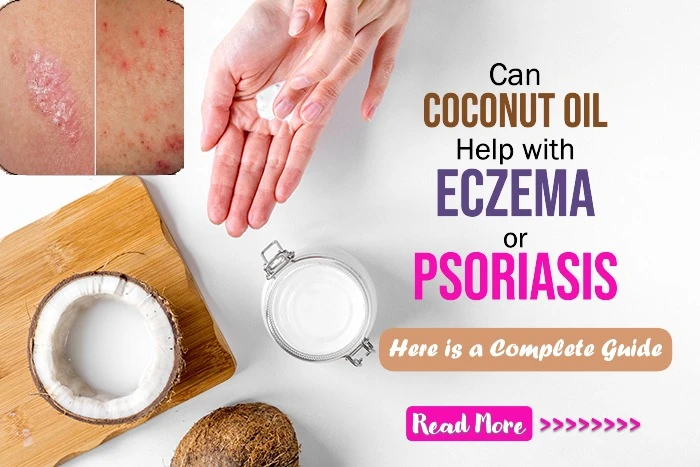Can Coconut Oil Help with Eczema or Psoriasis? Exploring Its Soothing Benefits for Inflamed Skin Conditions
Can Coconut Oil Help with Eczema or Psoriasis? Exploring Its Soothing Benefits for Inflamed Skin Conditions
Eczema and psoriasis are chronic inflammatory skin conditions that can cause discomfort, itchiness, redness, and flaking. While there is no permanent cure for either, managing symptoms through a combination of medical treatments and skincare is essential. One natural remedy that has gained popularity is coconut oil. But can it truly help soothe the symptoms of eczema or psoriasis? Let’s explore the science and potential benefits behind this popular home remedy.
Why Coconut Oil Is Considered for Eczema and Psoriasis
Coconut oil, especially virgin or cold-pressed varieties, is rich in medium-chain fatty acids, such as lauric acid and caprylic acid, known for their antimicrobial, anti-inflammatory, and moisturizing properties. These components can be beneficial for calming inflamed skin and restoring moisture—two key factors in managing eczema and psoriasis flare-ups.
The oil also contains antioxidants and vitamin E, which can support skin healing and improve the skin barrier. Since both eczema and psoriasis often involve a weakened skin barrier, coconut oil may help reinforce it and reduce irritation.
Potential Benefits for Eczema
Eczema (atopic dermatitis) is often linked to dry skin and an impaired skin barrier. Coconut oil may help by:
-
Deeply moisturizing the skin: Its emollient nature helps soften rough, dry patches and lock in moisture.
-
Reducing bacterial growth: Studies have shown that virgin coconut oil has antimicrobial effects, particularly against Staphylococcus aureus, a bacterium commonly found on the skin of eczema sufferers.
-
Soothing inflammation: Lauric acid’s anti-inflammatory effects may help reduce redness and itching.
A small study published in Dermatitis (2008) found that virgin coconut oil significantly improved skin hydration and reduced eczema severity in children compared to mineral oil.
Potential Benefits for Psoriasis
Psoriasis is an autoimmune condition characterized by rapid skin cell turnover, resulting in scaly plaques and inflammation. While coconut oil does not treat the root cause of psoriasis, it may help in these ways:
-
Softening thick plaques: Regular use may loosen and reduce the appearance of scaly buildup, especially when applied before bathing or after soaking.
-
Alleviating dryness and itching: Coconut oil can help keep the skin supple, reducing the discomfort associated with psoriatic patches.
-
Enhancing absorption of medications: When used in conjunction with topical treatments, coconut oil may help improve their penetration by hydrating the skin.
How to Use Coconut Oil Safely
-
Choose virgin, unrefined coconut oil to ensure the highest nutrient content and purity.
-
Apply to clean, damp skin to seal in moisture, especially after bathing.
-
Use it as a spot treatment on affected areas or as a full-body moisturizer.
-
Patch test first, especially if you have sensitive or reactive skin.
When to Be Cautious
While many people find relief using coconut oil, it may not be suitable for everyone. Some individuals with eczema or psoriasis may be sensitive to it or find it too heavy, potentially clogging pores or worsening inflammation. Always consult your dermatologist before introducing new products into your routine.
Final Thoughts
Coconut oil is not a cure for eczema or psoriasis, but its moisturizing and anti-inflammatory properties may help relieve symptoms and support overall skin health. Used correctly and with guidance from a healthcare provider, it can be a gentle, natural addition to your skincare regimen.

Related Blog
What Causes Oily Skin and Can It Be Managed Naturally? Exploring Root Causes and Gentle Solutions
Aug 2, 2025 by Admin
General
What Are the Signs That You Have Sensitive Skin? Key Symptoms to Help You Identify This Delicate Skin Type
Aug 1, 2025 by Admin
General